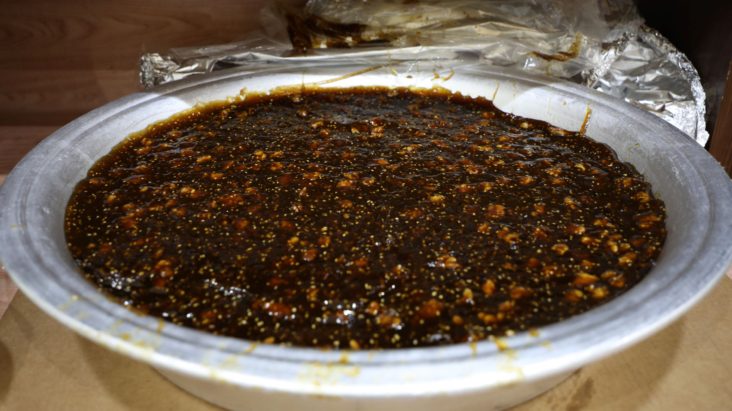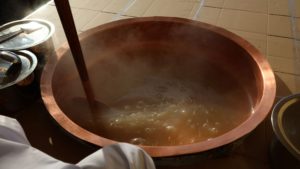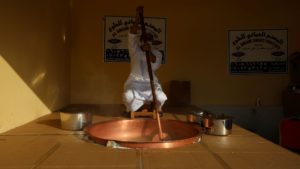Savour A Slice Of Omani History At Sharjah Heritage Days

Any time is a good time to sink your teeth into the indulgent gelatinous sweet that is a symbol of Omani hospitality. Especially so if you are at the currently ongoing Sharjah Heritage Days (SHD) in Heart of Sharjah where Sarfaraz, a skilled halwa maker at the 60-year-old Al Omani Sweet Factory daily churns out 40 kgs of the famed Omani halwa that is the cornerstone of every social gathering in the region.
As he stirs the bubbling caramelised sugar in a large round copper pot, the sweet aroma draws a crowd of onlookers. Continuously stirring with a large, flat spoon, to ensure that no lumps are formed, he throws spoonfuls of saffron infused rose water into the copper vessel.
Six main ingredients go into the vessel – cornstarch, saffron, ghee, plain or caramelised sugar, rose water and powdered cardamom. Special varieties are created with the addition of nuts. Three hours later, the sticky sweet halwa is ready to serve as visitors clamour to get their share.
Traditionally served with coffee (gahwa), the Omani halwa is enjoyed at any social event, be it weddings or religious festivals, funeral or birth, says Issam Al-Siyabi, who currently manages eight outlets of the Al Omani Sweet Factory in the UAE, originally founded by his father.
“Omani halwa is a symbol of our ancient cultural heritage, has been in existence for centuries; traditionally passed down from generation to generation,” he adds. “You can serve it to kings and the common man, and it will be welcomed everywhere.”
The traditional types of Omani halwa are the black and yellow varieties, he explains. “The black halwa gets its colour from caramelised sugar while plain sugar goes into the yellow variety. We offer a choice of three toppings – figs, olives, and nuts such as cashew, walnuts and sesame seeds.”
“The recipe has not changed since 1961,” he asserts, and judging by the crowds, its exquisite flavour has only intensified over the years.



